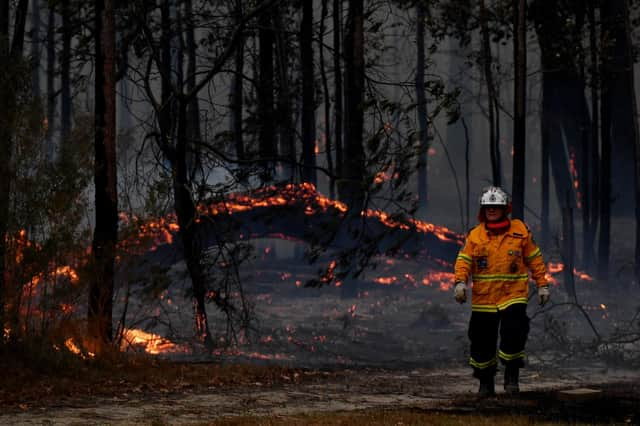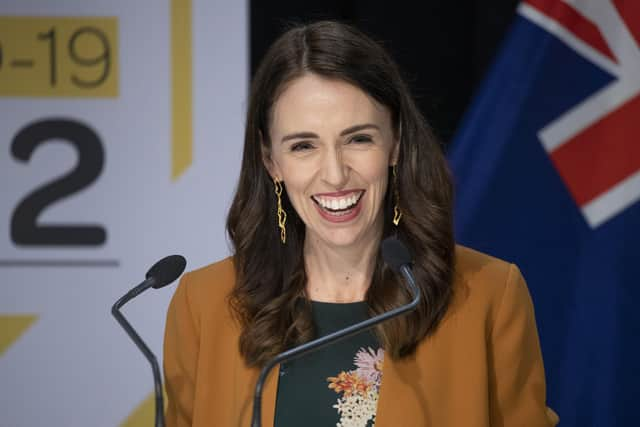As climate change continues to wreak havoc, the world needs leaders who can inspire us all – Zoë Arden


A second UK lockdown underway, a new President-Elect in the US. Alongside this, we have the five-year anniversary next month of the Paris Climate Agreement. Now signed by 197 countries, it is an ambitious commitment to limit global temperature rise to 1.5 degrees Celsius.
Despite this, in the past year we’ve seen the devastating impact of the Australian bush fires, continued destruction of the rainforest, the highest ever recorded temperatures in the Antarctic and unprecedented ice melt in Greenland. With the backdrop of this environmental turmoil, all eyes will be on Scotland this time next year when the world comes to Glasgow for the COP26 summit to discuss progress against this important target.
Key leadership qualities
Advertisement
Hide AdAdvertisement
Hide AdIn short, these are uncomfortable times to be a leader, particularly if you are in an organisation that wishes to help shape a positive future. So what can be done to have an impact?
When we look at these system pressures and trends, clearly one of the levers of change is the actions we take as individuals. At the moment, however, the evidence is that we aren’t stepping up. While we have the data, know the science and may hold some of the solutions, we’re not yet implementing them at scale.
How do we build the capability to respond? Well, we need leaders who are ready to grapple with the big systems challenges, can navigate the complexity, are comfortable in the discomfort and ready to lead whatever their context. Key characteristics of this leadership include being agile and curious to acquire new knowledge, being purposeful and accountable.


But individuals and individual entities cannot solve today’s global problems on their own. The system-wide shifts required demand that multiple actors come together to create innovative responses. We need courageous collaborations involving different types of stakeholders – including government, business, civil society and academia – where people are willing to take risks and experiment to build new and effective solutions. We’ve already seen this in response to the pandemic with new multi-sector partnerships rapidly evolving to create Covid-19 vaccines, testing and healthcare provision.
To achieve more of these types of radical collaborations we need first to break through the gridlock that we’re seeing in all aspects of society. We are struggling with an inability to find common ground or even respect for difference. We only need to turn to global media to realise how toxic many issues have become. If we can’t communicate with each other, we are left stuck in our siloes and that can quickly become destructive.
No magic bullets
Dealing with conflict is a fundamental leadership skill which requires humility, empathy and skillful stakeholder engagement. New Zealand’s newly re-elected Prime Minister Jacinda Ardern is an oft-cited beacon of hope here. In her victory speech, she observed, “We are living in an increasingly polarised world, a place where more and more people have lost the ability to see each other’s point of view. We have shown that we can listen and debate. We are too small to lose sight of other people’s perspective.” She continues to champion diversity and inclusion as seen with the composition of her new Cabinet.
As leaders, we need to reinforce the concept that more unites than separates us. Creating separation in political debate might bring individual power but doesn’t solve problems. As Abraham Lincoln famously said, “I don’t like that man. I must get to know him better.” We need to take strength from diversity rather than pushing for conformity. We must model inclusivity by seeking out difference, striving to unite behind a shared vision for humanity and the planet to thrive.
Finally, while there are no magic bullets, I do feel that a possible superpower we all have the potential to master is communications. The world needs leaders who are skilled communicators who can work with others to have a positive influence and impact.
Advertisement
Hide AdAdvertisement
Hide AdMore than ever, we need self-aware individuals to show up at all levels of organisations and throughout society who can break the mould: communicate, engage and inspire. Why? Because as we’ve seen, today’s world is complex and the problems we face, like Covid-19, are wicked ones. We can’t respond on our own.
Communication and influencing skills are critical to these leadership challenges because of the sheer power of language to shape the world in which we live.
The stories we tell about ourselves, our organisations and our humanity matter. They can shape how we think, what we do and our impact in driving change. Storytelling and how we show up as leaders are inextricably linked in building the future we want. We can all start by having conversations that drive meaningful change.
Zoë Arden is a Fellow of the University of Cambridge Institute for Sustainability Leadership where she is the co-convenor of the Institute’s High Impact Leadership online short course and co-convenor and head tutor of the Communicating for Influence and Impact online short course. She is on twitter @zoearden
Zoë is delivering the keynote address at The Scotsman’s free webinar, Leadership for sustainable future, on Wednesday November 25 in association with international law firm CMS. Register here or via www.scotsmanconferences.com. Other webinar panelists include Liz Lowe (Head Of Sustainability, Great Britain, The Coca-Cola Company), Allan Wernham (Managing Director, CMS Scotland), James Withers (Chief Executive, Scotland Food and Drink) and Andrew Cave (Head of Governance & Sustainability, Baillie Gifford)
A message from the Editor:
Thank you for reading this article. We're more reliant on your support than ever as the shift in consumer habits brought about by coronavirus impacts our advertisers.
If you haven't already, please consider supporting our trusted, fact-checked journalism by taking out a digital subscription.
Comments
Want to join the conversation? Please or to comment on this article.